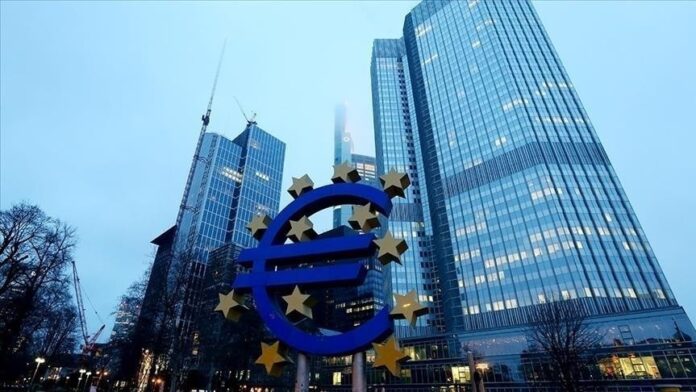Is European economy on track? Despite the cautious optimism of the institutional voices, the perspectives for 2024 and beyond are not encouraging. The core issue of the economic governance is still open.
By Paolo Pellegrini
What perspectives for the economy of European Union in 2024? Reading the latest European Commission’s Economic Forecast1 and European Central Bank’s Macroeconomic projections2, high uncertainty continues to surround the outlook. Despite the good news of the declining inflation, the negative impact of the monetary policy tightening (although assumed to have contributed to the fall of high consumer prices) is expected to continue to weaken possible growth, at least in the short term. Real economy growth in the Eurozone was below 0% in the third quarter of 2023 and the possible gradually recover foreseen will not be enough to counterbalance the negative trend. If only because the estimations are all focused on minimal variations: no one can seriously account as significant 0,1 percentage points up or down.
One could be pushed to ask himself what’s wrong with Europe, as in the meantime, looking at the world economy, the global growth in 2023 was estimated at 3,3%. Not even comforting is the comparison with the United States, where a tightening of monetary policy very similar to the one imposed to the Eurozone by the ECB has not driven the same recessive impact, with a solid domestic demand and a strong labour market apparently able to sustain a robust growth3.
It is quite evident that the post-pandemic expansion of 2021 and 2022, boosted by the resumption of production and commerce and, above all, by the fiscal stimulus provided by the suspension of the Stability and Growth Pact4 and the common and coordinated fiscal policy pursued through the debt mutualisation (Next Generation EU), has now lost its momentum. The EU fiscal stance appears projected to a flat curve in 20245 (that is stagnation, not to say recession), with downside risks that could even increase (here the uncertain is total) depending on the course of the war in Ukraine and possible further escalation in the Middle East.
Italian version:
What data and forecasts show is that in our continent the fiscal policies are not supporting the economy. And they will not in the near future.
This is different to what is going on in the United States, where (somehow ironically, thinking to the contemporary political history of the USA and to the origin of the economic mainstream theory) pragmatism and political will overlooks obsession on reducing public deficit and controlling debt dynamics. This is possible because of the federal structure of the state and the consequent federal fiscal policies that Government and Parliament can drive. Where in Europe the decision makers (i.e., the majority of Governments of Member States) are always stuck at the same objective: to reduce imbalances in public finances, regardless of any circumstance, specific economic cycle or possible negative consequences.
In this context, there is nothing to rejoice about the agreement finally reached on the modification of the Stability Pact6. Besides different opinions of the experts on the actual effects of the new rules (basically differentiated path for each country to arrive to the same constraints, still the same for all countries, and some expenditures excluded in calculating the deficit), it remains that these are small details that will not change the direction of the economy: at most they can improve or damage the economic stance of one country or another.
What is really missing is an effective fiscal policy that can stimulate growth in the entire EU, meaning a common economic policy.
How to reach the objectives (always mentioned in all the official documents of the EU Institutions) of the green and digital transition, of the poverty reduction, of the social resilience, of the aging of population? How to face the risks associated to the natural hazards caused by the climate change, whose effects can be catastrophic not only for people and environment, but also for economy?
No automatic pilot can support economic growth and transition, with rules on deficit and public debt and no political autonomy and harmonized fiscal policies. This is clear, by now, and acquired in literature by the majority of the academics and in the informed public discussion7. Yet, this is neither enough disseminated in the common public debate through the mass media, nor admitted by the hegemonic politics, dominated in Europe countries by right-wing and sovereigntist parties, against any step forward in a more strengthened Union.
It seemed for a moment, during the pandemic and still following the Russian’s invasion of Ukraine, that the consciousness of the impact of asymmetric shocks was acquired by the European states. Indeed, the Pact was suspended and an embryonic common economic policy was launched with the Recovery and Resilience Facility. But now austerity and balanced budgets are again considered objectives to be pursued ad imposed, regardless of anything. There’s no place in the near future for a strengthened European budget associated with increased own resources, any expanded mutualisation of debt and common fiscal policies, albeit limited at extraordinary purposes or specific expenditures. Except if great surprises should arise from the European elections next June, what so far seems to be all but possible. So, the core issue of the economic governance of EU is in not on the table at the moment, at probably will not be addressed for still a long time.
Note
1 European Commission, European Economic Forecast – Institutional Paper 258, November 2023
2 European Central Bank, Macroeconomic projections, December 2023 (https://www.ecb.europa.eu/pub/projections/html/index.en.html)
3 Source: U.S. Bureau of Labor Statistics (https://www.bls.gov/)
4 By application of the “unusual events” and “general escape” clauses.
5 European Parliament, Implementation of the Stability and Growth Pact under exceptional times, In-depth analysis, December 2023
6 European Council, Council orientations for a reform of the EU economic governance framework (https://www.consilium.europa.eu/en/)
7 M. Draghi, On the path to fiscal union in the euro zone, The Economist, 6 September 2023
Foto copertina: European economy. European economy

